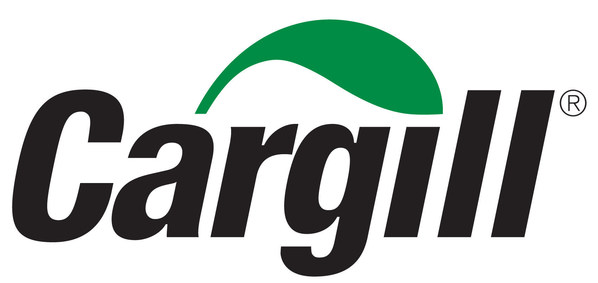 |
Company accelerates effort to remove iTFAs by end of 2023; Stands ready to help customers eliminate iTFAs from national food supplies
WAYZATA, Minn., Dec. 6, 2021 /PRNewswire/ -- As food manufacturers seek ways to help improve consumer diets, Cargill is supporting our customers by committing to remove iTFAs from its entire global edible oils portfolio. This helps both Cargill and its customers comply with the World Health Organization's (WHO) recommended standard of a maximum two grams of industrially produced trans-fatty acids (iTFA) per 100 grams fats/oils by the end of 2023.
The WHO's REPLACE initiative provides a guide for governments and industry to implement a best practice on iTFA in the global food supply chain to address related health concerns. Cargill is the first edible oils supplier to make this commitment, joining many of the world's largest food companies and members of the International Food and Beverage Alliance (IFBA) who have committed to the WHO goal.
"We are thrilled to see Cargill's commitment to reduce iTFAs in all of their oils, in service of the World Health Organization's goal to phase iTFAs out of the food supply," said René Lammers, Executive Vice President and Chief Science Officer, PepsiCo. "This move aligns with PepsiCo's efforts to reduce iTFAs in our foods and is a crucial part of our pep+ (PepsiCo Positive) journey to evolve our food and beverage portfolio to be better for the planet and people. Cargill is an important part of our supply chain and we look forward to working together to continue to accelerate progress toward our iTFA goals."
Over the last 25 years, Cargill has removed an estimated one billion pounds (nearly 500,000 metric tons) of iTFAs from the global food supply, resulting in approximately 89% of its global edible oils portfolio already meeting the WHO's iTFA best practice. With this commitment, the company will now achieve 100% compliance, including in countries where there currently is no legislative mandate. To achieve this final 11%, the company is significantly investing in upgrades at several facilities to reduce the amount of iTFAs produced during the oil manufacturing process and leveraging decades of innovation expertise to provide food customers alternative formulations that will help them meet the WHO best practice.
"Even as the world continues to battle the COVID-19 pandemic, we know that worldwide, improving nutrition remains a top concern," said David Webster, leader of Cargill's food ingredients and bioindustrial enterprise and chief risk officer. "This commitment aligns with our purpose to nourish the world in a safe, responsible and sustainable way and gives us the opportunity as a collective industry to remove iTFAs from the global food supply no matter where food is manufactured or consumed. We know this effort will take time, and we are eager to work with customers as they take this important step."
Innovation makes the reduction of iTFAs possible
This commitment from Cargill builds on decades of innovation to address iTFAs, which are primarily formed through the partial hydrogenation of vegetable oils (PHO), but also can result from high thermal treatment during the refining process. While iTFA regulations are in place in approximately 40 countries, either through PHO bans or limits to maximum amounts of iTFAs in food, they remain a health concern in many locations.
Cargill's innovation centers have made significant advancements toward reformulating alternatives to products that contain iTFAs, offering more than 300 global customers viable and safer solutions to date. These innovations demonstrate that it is not only feasible to meet the WHO best practice on iTFAs, but it can be done without discernably changing the taste or texture of consumers' favorite foods.
"We're proud to be part of this effort to share and apply our expertise to help food manufacturers of all sizes, across all geographies to remove iTFAs," said Jennifer Shomenta, president of Cargill's global edible oils business.
To support the WHO's efforts, Cargill will also support the industry through engagement with targeted regional and national stakeholders, such as governments and oil industry federations, to support industry-wide reformulations particularly in countries where legislation is not yet in place.
About Cargill
Cargill's 155,000 employees across 70 countries work relentlessly to achieve our purpose of nourishing the world in a safe, responsible and sustainable way. Every day, we connect farmers with markets, customers with ingredients, and people and animals with the food they need to thrive.
We combine 155 years of experience with new technologies and insights to serve as a trusted partner for food, agriculture, financial and industrial customers in more than 125 countries. Side-by-side, we are building a stronger, sustainable future for agriculture. For more information, visit Cargill.com and our News Center.
About Cargill Global Edible Oil Solutions
Cargill's Global Edible Oil Solutions (GEOS) has more than 8,000 employees at more than 50 facilities in 20 countries. Fueled by our culture, values and strategy, we aspire to be the leading global provider of vital lipid energy and nutrition for the world's growing population.
We offer a range of products and solutions to foodservice, retail, manufacturing and distributor customers around the world, touching the lives of billions of people every day.
By understanding the world around us and listening intently to our customers, we are ready to solve their biggest challenges successfully and sustainably.
Photo - https://mma.prnasia.com/media2/1703019/Cargill_Edible_Oil.jpg?p=medium600
Logo - https://mma.prnasia.com/media2/1488953/Cargill_Logo.jpg?p=medium600